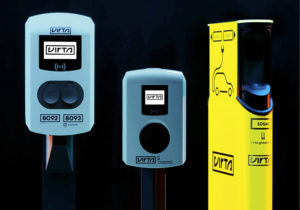 As electricity markets become more flexible and decentralised, the ability to control things increases in importance, as electric vehicles are a means of enabling an increase in renewable energy. Conventional charging refers to the form of charging where electricity is fed into the vehicle without any form of control system.
As electricity markets become more flexible and decentralised, the ability to control things increases in importance, as electric vehicles are a means of enabling an increase in renewable energy. Conventional charging refers to the form of charging where electricity is fed into the vehicle without any form of control system.
Smart charging uses a control system that can regulate charging according to various needs. Often, it is sensible to charge vehicles when the price of energy is at its lowest. Another reason is to schedule charging for the hours when the household’s energy consumption is low.
Bidirectional charging enables electricity to be fed from the vehicle back into the grid. This enables the vehicle to be used as a battery and a backup energy supply. Car batteries are fairly large, storing plenty of energy to satisfy a temporary need.
“Bidirectional charging works very well with solar power, as the battery is charged when the sun is shining and discharged when electricity is needed.”






